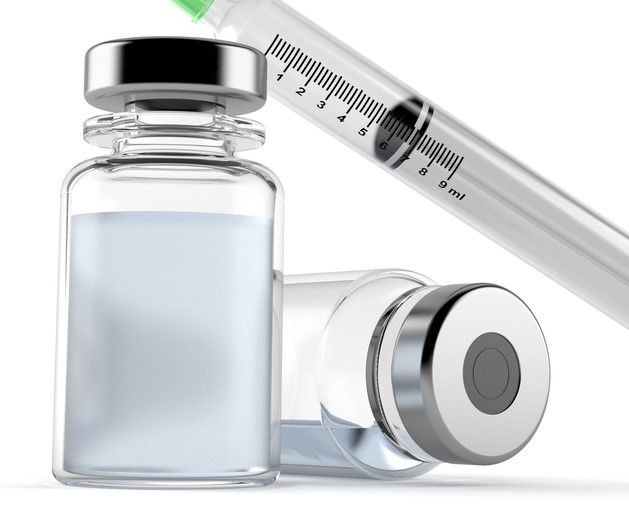- Bone Health
- Immunology
- Hematology
- Respiratory
- Dermatology
- Diabetes
- Gastroenterology
- Neurology
- Oncology
- Ophthalmology
- Rare Disease
- Rheumatology
Amgen Discusses Interchangeable Status for Its Adalimumab Biosimilar
In its third quarter earnings report, Amgen addressed the give and take of biosimilar competition.
Amjevita, the adalimumab biosimilar, figures prominently in Amgen’s plans for growth, such that the company made it a prominent feature of its earnings discussion for third quarter 2021 results.
Sales of the product rose 39% compared with the comparable year-ago quarter, although volume growth was up 73%. The difference was attributable to lower net selling price, as competition among adalimumab products drove down prices, company officials explained. The company boasted that Amjevita is the best-selling adalimumab biosimilar in the European Union.
“We expect to bring Amjevita, our biosimilar to Humira (reference, AbbVie) to the United States in 2023. We expect to replicate the success we've had with Amjevita in many other markets around the world,” said Robert A. Bradway, chairman, CEO, and president of Amgen. The company said it has a trial under way to help qualify Amjevita for interchangeable status, which would allow pharmacists to substitute the product for reference brands.
The product brought in $111 million in revenues in the quarter just ended, up from $80 million a year earlier.
Biosimilars contributed to 4% overall revenue growth at Amgen in the third quarter, for $6.7 billion in total revenue across all product categories. Mvasi, a bevacizumab biosimilar, was named as one of the key drivers of that growth.
Mvasi brought in $187 million in revenues in the United States and a total of $274 million worldwide, up 19% from $231 million in the comparable year-ago quarter. The company said volume of sales was up 54%, although net prices were lower.
“In the United States, Mvasi continues to hold leading volume share with 49% of the bevacizumab segment in the quarter. We expect that continued worldwide volume growth from Mvasi will be offset by declines in net selling price due to increased competition,” Amgen said.
Sales revenues for the company’s trastuzumab biosimilar Kanjinti declined 31% this quarter vs the comparable year-ago quarter. Lower net selling prices were the cause, as volume of unit sales increases 18%. “In the United States, Kanjinti continues to hold leading volume share with 41% of the trastuzumab segment in the quarter. We expect net selling price to continue to decline as a result of increased competition.”
Amgen reported net income of $1.9 billion for the quarter just ended, down from $2.0 billion a year ago. The company attributed the decline to expenses related to a licensing deal with Kyowa Kirin.
The company said it is breaking new ground in the development of inflammation treatment products, explaining it expects to report phase 3 data soon for biosimilar candidates for ustekinumab (Stelara), for plaque psoriasis and psoriatic arthritis; aflibercept (Eylea), for macular degeneration; and eculizumab (Soliris), for paroxysmal nocturnal hemoglobinuria and atypical hemolytic uremic syndrome.
Amgen said sales of Enbrel (etanercept), which faces biosimilar competition abroad but not yet in the United States, declined 3% compared with the year-ago quarter, driven by a 2% decline in volume of units sold. The company said the decline in volume has been slowing in recent quarters.
Total sales of a basket of established Amgen agents, which include the pegfilgrastim (Neulasta), filgrastim (Neupogen), and epoetin alfa (Epogen), originator products, each of which faces heavy biosimilar competition, declined 21% on average, “primarily driven by volume declines and lower net selling price. Going forward, we expect increased competition to result in additional net price and volume erosion across this portfolio of products,” the company said.
Broken down by agent, Neulasta revenues declined to $415 million from $555 in the comparable 2020 third quarter (–25%); Neupogen, $52 million vs $65 million (–20%); and Epogen, $138 million vs $149 million (–7%)
Amgen reported the following progress for biosimilar candidates:
- A phase 3 study of ABP 938, referencing the aflibercept product Eylea. The study is enrolling patients and data are anticipated in 2022.
- Phase 3 studies of ABP 654, referencing Stelara, and ABP 959, referencing the eculizumab product Soliris. Data are anticipated in 2022.
- Phase 3 studies to support an interchangeability designation in the United States for ABP 654 and Amjevita are enrolling patients.
Most recently Pfizer announced that it was seeking to obtain interchangeable status for Abrilada, also an adalimumab product, set to launch in 2023.
Newsletter
Where clinical, regulatory, and economic perspectives converge—sign up for Center for Biosimilars® emails to get expert insights on emerging treatment paradigms, biosimilar policy, and real-world outcomes that shape patient care.

